THE BICAMERAL MIND (2nd part) - The Lost Voices of the Gods
we may regard the Iliad as standing at the great turning of the times, and a window back into those unsubjective times when every kingdom was in essence a theocracy and evey man the slave of voices heard whenever novel situations occured.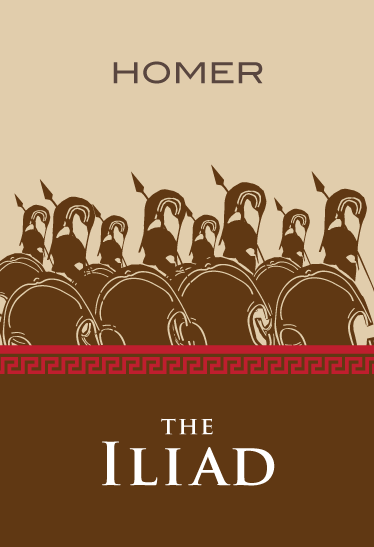
In order to sustain his theory that consciousness (as we know it) evolved with language, Julian Jaynes turns towards one of the oldest text known: Homer’s Iliad, and wonders about the way the characters are acting.
Why the Iliad?
As you know, the Iliad is a long poem, supposedly written by a poet called Homer, narrating the way the Acheans launched a raid on Troy and besieged it for many years as a retalation for the rapt of Helen by Paris. True, it’s not the oldest work of literature, or written document we may have, but it’s the first writing in human history in a language about which we know enough to be able to decrypt it with enough certitude..
Basically, by analyzing the text in its original form (which is a feat since it has been copied, recopied, and updated continuously through centuries after passing from mouth to ear for almost a long), the evidence is that Achilles, Agamemnon and all their friends and enemies have no conscious at all - as we know it.
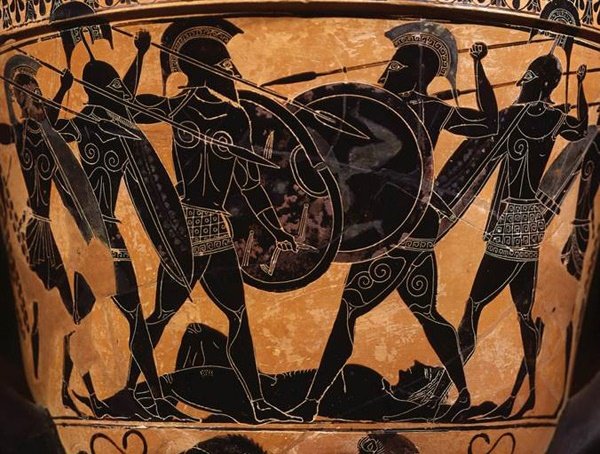
The Language of the Iliad
The heroes of the Iliad do not act like we act today, as can be seen through the way the text is written. To prove his point, Jaynes analyses closely the texts and finds that even the mental vocabulary which is familiar to us does not mean the same thing in Homer’s work. Basically, they are more concrete.
Jaynes identifies for example psyche and thumos. For us, psyche means today the soul, or the conscious mind. However when you analyze the text, the psyche was something physical. For example, warriors bled out their psyche onto the ground.
As for thumos, which nowadays would be taken as emotion, is considered by the Greeks as motion or agitation:
But it is also somehow like an organ in itself, for when Glaucus prays to Apollo to alleviate his pain and to give him strength, Apollo hears his prayer and “casts strength in his thumos”. The thumos can tell a man to eat, drink or fight.
To sum up, the heroes of that time are unable to introspect. They have no inner life, they have no ego.
The Absence of Will
Even stranger, Jaynes finds no word for the concept of will or volition. Achilles never says “I will do that” or “I am going to…”:
Thus, Iliadic men have no will of their own and certainly no notion of free will. [...] They have no conscious minds such as we say we have and certainly no introspections.
So, how do men of that time acted? They are propelled by a totally different motor:, through their gods!
When Agamemnon robs Achilles of his mistress, it is a god that grasps Achilles by his yellow hair and warns him not to strike Agamemnon. [...] It is the gods who start quarrels among men that really cause the war, and then plan its strategy. In fact, the gods take the place of consciousness.
The gods are the real masters of this world:
The beginnings of action are not in conscious plans, reasons, and motives; they are in the actions and speeches of the gods.
But we all know, right, that Gods don’t exist. So, who were those gods? nothing less and nothing more than voices:
They were voices whose speech and directions could be as distinctly heard by the Iliadic heroes as voices are heard by certain epileptic and schizophrenic patients, or just as Joan of Arc heard her voices.
The voices of the gods
How come? Why? Well, according to Jaynes, this is due to a phenomenon which can be still observed today in some schizophrenics, who have auditive (and sometimes visual) hallucinations.
Iliad’s heroes where schizophrenics in a sense: their mind was divided in two, they had a bicameral mind, one part was the acting one and the other part was the deciding one.
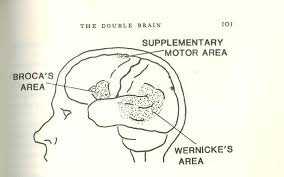
Speech areas all on the left side. Why? Most other important functions are bilaterally represented. This redundancy in everything else is a biological advantage to the animal, since, if one side is injured, the other side can compensate. Why then was not language?
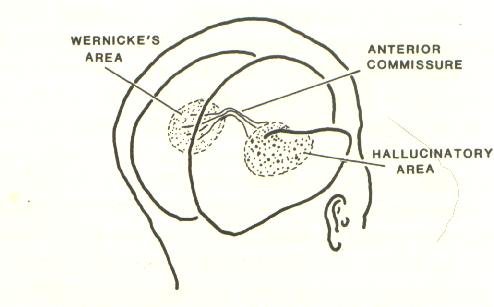
The language of men was involved with only one hemisphere in order to leave the other free for the language of the gods.
Jaynes even identifies a section of the right hemisphere (see pic right) which is curiously "empty" let's say. In that place, was the "hallucinatory area"
... where gods spoke to men and were obeyed because they were human volition!
And this is a part which we have lost! And why we lost this part of speech? This is rather difficult to prove, but from there, Jaynes constructs a whole concept about the Human history and the search for the lost voices of the Gods, and the birth of our own modern consciousness...
TO BE CONTINUED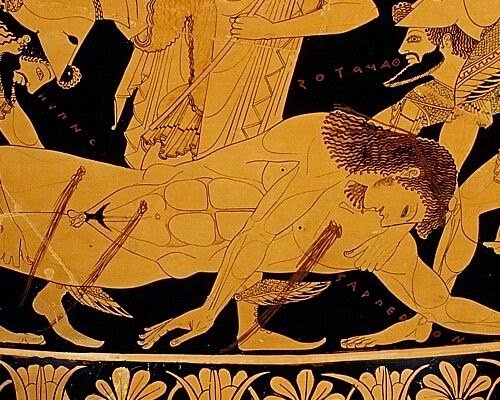
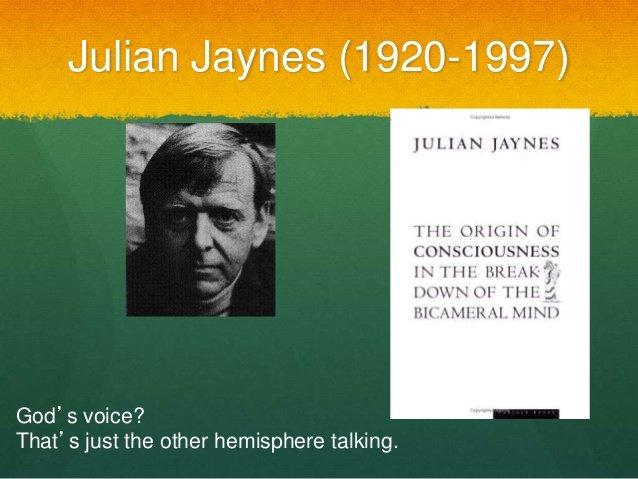
I read The Origin of Consciousness in the Breakdown of the Bicameral Mind. That is one deep book.
It is interesting that you post about it on Steemit. Having never seen "Westworld", I did not know that bicameral mind was in it. I'll have to view "Westworld" to see how it compares to Jaynes' thesis.
Thanks! Yes, this is a digest of the book in itself :) Watch the series, it's obvious that they took inspiration from it :)